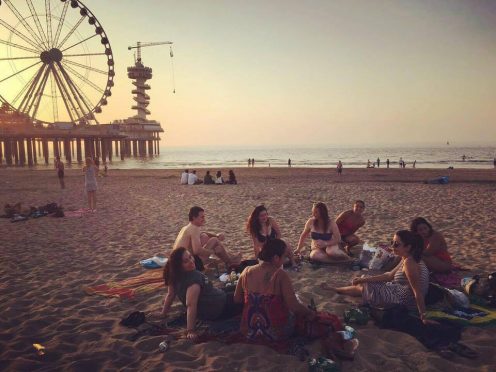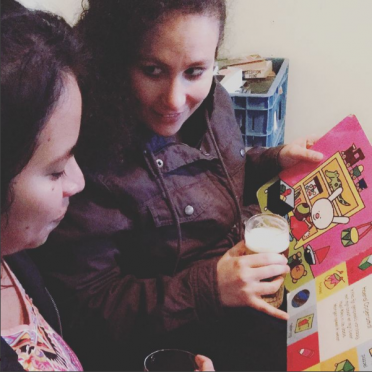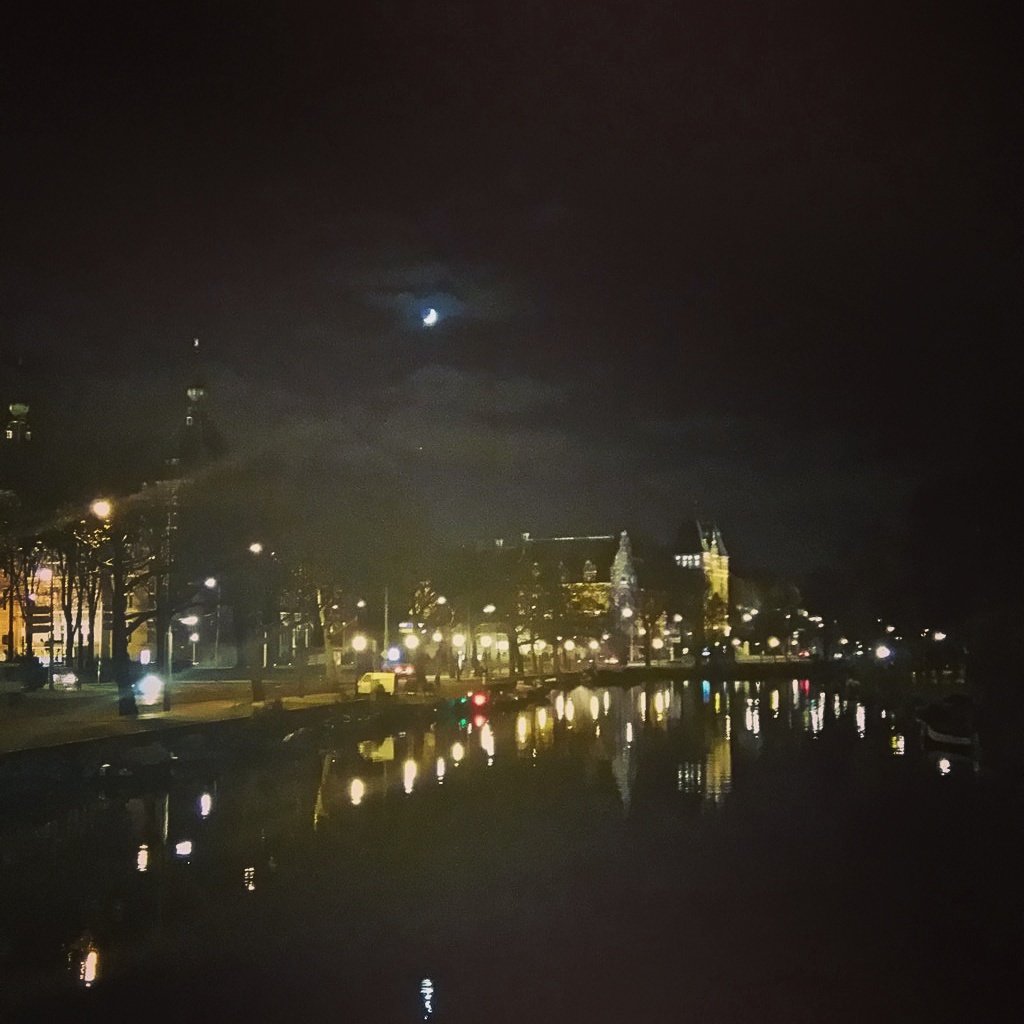Pre-departure: the prequel
In order to apply for the exchange and be placed at one of three preferred host universities, applicants were required to write a motivation letter, and submit a video clip of themselves answering certain questions about South Africa, Stellenbosch, and the destination of their choice. As you may imagine, both of these activities are more engaging than the normal run of the mill bureaucracy of finding and reading various forms, completing various online forms, and printing and scanning various forms.
Writing a motivation letter may seem daunting to some, but it is in fact not only useful for the coordinators, but also for the applicants, since it encourages you to inspect your objectives for wanting to spend a semester studying abroad. Hopefully, future applicants will have a similar experience to mine with respect to realising that the academic aspect of the exchange is not—and I believe should not be—the sole motivation for conducting an exchange semester. Wanting to experience different cultures, explore more parts of the world, learn new languages, and making friends for life are all equally important and valid motivations for studying abroad.
The video clip is essentially a 3-5 minute interview with yourself, which is a novel way to introduce yourself. This is cool because you can showcase your personality by creatively answering certain questions from a given set of topics ranging from light to serious subjects. For those who have Apple computers, recording and editing video will probably not be very difficult. But for those like me who have a PC, you most probably have never investigated the multimedia potential of your computers. If you do not already have it, I would recommend downloading Windows Live Movie Maker in order to create the interview videos. And in terms of answering questions, make sure to not shy away from the more challenging topics, but also remember to make the videos entertaining so as not to lose your audience’s attention.
The rest of my experience of the visa application process was both good and bad. Once you get started with it, collecting the documents becomes easier as you gain steam. I would recommend setting aside a few days for doing so in order to get as much as possible finished in one go. The only issue I encountered was a delayed visa application due to confusion about the required minimum amount of money to have in my account. Besides that, applying for housing and obtaining insurance were relatively straightforward.
Lastly, do not be surprised to feel some anxiety during the pre-departure time period. In most of my and my friends’ experiences, there is always some apprehension before a trip abroad, and that is perfectly understandable considering that spending a semester in another country is rather a big change and, potentially, a life-altering event. Anxiety levels will considerably decrease, however, once all of the admin is completed. I would therefore urge all future applicants to put in as much effort as early as possible in order to get everything done in order to alleviate any apprehension.
Experience at the host university: the main event
I had a rocky start on my first day in the Netherlands. After picking up the flat keys from the agency and travelling to my new home, it transpired that the key that was supposed to open the door of the flat building did not work, and I was locked outside without any airtime on my phone, or mobile data. Only one of my two flatmates had arrived by that time, but she was not home. This was quite distressing, but to quote Ben Kingsley’s character in Iron Man 3, “I panicked, but then I handled it”. Fortunately, I wandered down the road to a butchery where two friendly women allowed me to use their phone to contact the estate agent. Even more fortunately, within the next hour a neighbour arrived at the building and let me inside and I was able to finally enter the flat. After this initial trouble, I was happy to find that the flat was quite large, and my room was more spacious than I had expected given its rent. Later, however, it became apparent that the rent was relatively low because the flat was old, as well as home to a family of mice and a host of random household problems. Regardless, my housemates and I agree that we still love the flat despite all its imperfections, and we decided that it did not have issues as such, but had character.


With respect to academics, the Dutch system is not much different from that of Stellenbosch in terms of the workload and pace of the courses—both have continuous assessment, which in my opinion is far superior to systems in which the only assessment is one huge exam at the end of the semester. One course, Bounded Rationality (BR), was structured in a way I have not wholly encountered before; as a reading group. One previous subject that did help with preparation for BR was Stellenbosch’s Masters Macroeconomics course, which had similar assessments. The BR assessments were in the form of presentations, discussions, reports, and a term paper (no exam!). This approach was really conducive to enthusiastic class discourse about the work, and it helped very much to shed light on different perspectives and interpretations. This structure, in combination with the subject matter and excellent teacher, made this one of my favourite subjects I have ever taken.
Another course, Machine Learning for Econometrics, was one of the most difficult courses I have ever taken. Machine learning is something typically reserved for computer science and engineering, neither of which I had any experience with. Having taken econometrics courses in Stellenbosch at least prepared me for the workload of weekly assignments and tutorials of the machine learning course. The problem, however, was that the mathematical notation differed from what I was used to, and this in combination with the difficult subject matter considerably complicated things. Even after spending hours upon hours upon hours studying for the exam, it was still the toughest exam I ever had to write, and I was seriously convinced that I had failed. Luckily (in my mind I can only attribute it to luck) I ended up passing, and I am really grateful to have access to all of the course material for potential future reference.
Socially, I would have to say that Stellenbosch students are more apt at integrating exchange students. Not because Dutch students are standoffish—far from it—but because during classes they tend to clique together, and in breaks they would speak Dutch to each other (understandable, but alienating), whereas in Stellenbosch everyone speaks English in postgrad, and we typically introduced ourselves to new students during class and invited them to group events at every opportunity.
Return to Stellenbosch: the sequel
Like most good sequels, my return to Stellenbosch is yet to happen (and in fact my studies are finished with this semester, so I will not actually return to Stellenbosch). I extended my stay in order to see a bit more of the country, and to have my mother come over for a visit. From her extensive reading on Europe during World War II, my mum’s number one travel destination is Amsterdam, so I thought the opportunity for her to visit at the end of my stay should not be squandered. As I am writing this she arrives the day after tomorrow, and I am very excited for her arrival!
What I am going to miss very much about the Netherlands is the independence offered by the different modes of public transport, as well as the ease of cycling. The bicycle-friendly infrastructure is incredibly impressive, and simply using your OV-chipkaart to get around on trams, buses and trains is extremely convenient and efficient. But something that I will not miss, and I suppose cannot really be helped, is being pummelled by the exchange rate! However, the street markets and thousands of small shops will be missed when going back to oligopoly-filled South Africa. I do, however, look forward to being surrounded by mountains, warmer weather, and South Africa’s natural beauty. That is not to say that the Netherlands cannot compete; Picture 3 depicts a particularly foggy night in the city, and the beautiful night-time sky with the reflections on the water make it very easy to see from where the famous Dutch painters drew their inspiration.
One thing that I will keep in mind upon my return is engaging with my own culture. Living with my Colombian flatmate has been a very good experience in many ways, and one of the things that has really made me think is how she participates in her own culture—music, food, rituals, language, etc. Being an Afrikaans vegetarian who enjoys progressive rock, I have not really felt quite at home in the vleis braai/sokkie-sokkie culture, but I am going to make a conscious effort to explore the wealth of Afrikaans literature when I get back, especially since I have realised that the quality of my English has surpassed that of my native language, and it is now almost impossible to have a casual Afrikaans conversation that is not peppered with English words.
In terms of my future plans, this exchange experience has definitely been favourable for strengthening and already-existent inclination for travelling. However, I would be wary of working abroad for too long; it seems somewhat ungrateful to have had the bulk of my education in South Africa, and then leaving to aid in the progress of another country instead of that of mine. Of course, that is not to say that travelling and staying true to your own country are mutually exclusive things. I suppose it would be best to have people act like boomerangs; travelling to different countries to broaden their perspectives and then come back to home and use that gained knowledge to improve South Africa.

